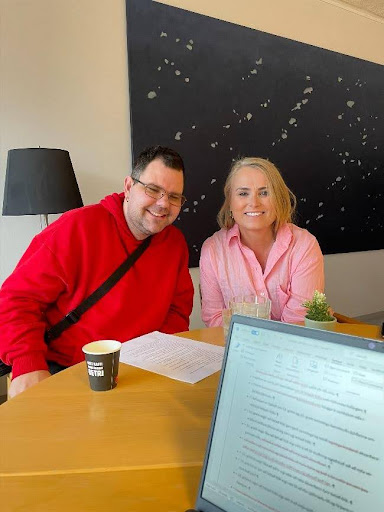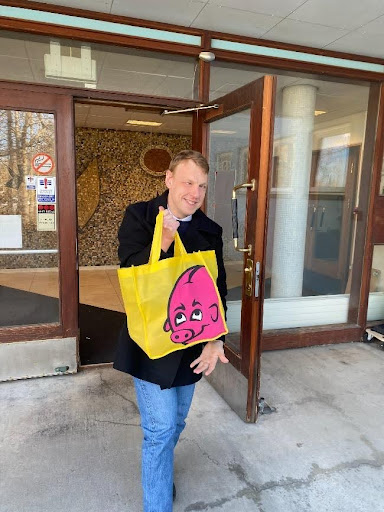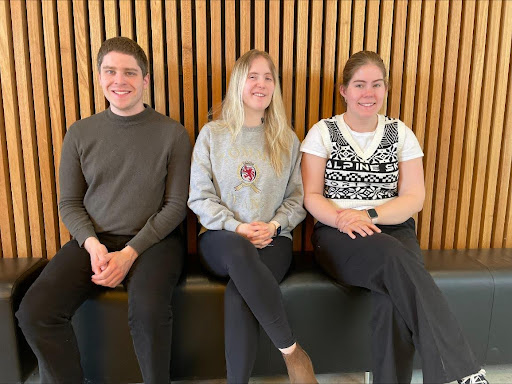Student Corner: Vocational Diploma at the University of Iceland.
Ragnar Smára and Gísli Björnsson
In 2013, Ragnar Smára and Gísli Björnsson graduated from a vocational diploma program at the University of Iceland. This program is inclusive, allowing students to participate in the same courses as other undergraduate students at the School of Education. In January 2016, they were hired by the University of Iceland to work on the research and educational project “Equality for All” (Jafnrétti fyrir alla). Funded by the Icelandic Gender Equality Fund and the University of Iceland Research Fund, the project initially focused on the perceptions of men with intellectual disabilities regarding equality and gender roles, aiming to gather information about their access to equality work and advocacy.
As the project developed, it became apparent that the focus on gender equality was too narrow. The project thus expanded to a broader intersectional scope of equality work, incorporating socio-cultural categories such as class, skin colour, nationality, sexuality, age, and disability. Data were collected through focus group interviews and various guerrilla art methods. The findings were presented at national and international conferences, published in journals, and shared on the project’s webpage (jafnrettifyriralla.is).
The research project formally concluded in 2018, leading to a shift towards teaching and the development of educational materials derived from the research findings. An equality module was designed for upper secondary school students, aimed at promoting equality education within upper secondary programs for students with intellectual disabilities and broadening the concept of equality among all secondary school students. Between 2018 and 2020, the project team collaborated with numerous upper secondary schools to implement either a full-term module or shorter workshops for students. Following this period, some schools have continued to provide equality education using the project’s teaching materials.

In 2020, Ragnar joined the “Disability in Times of Pandemic” research team at the University of Iceland. This project aims to enhance understanding and knowledge about the experiences, health, and well-being of disabled individuals during a pandemic, emphasizing the perspectives of disabled people. Ragnar’s role involves presenting findings in an accessible, easy-to-read format and collaborating with people-first groups. Additionally, Ragnar serves as a part-time lecturer at the University of Iceland, teaching a module on inclusive research methods alongside other lecturers. Ragnar cherishes his university role, believing it significantly impacts his life, stating: “I like having a paid job because it means that I am an active participant in society. What I love most about my job is teaching and being around people. I have been involved in several research projects and I think it is important to be involved and I do not want non-disabled academics to be the only ones who decide how we talk about disability.”

Gísli has been employed in the administration office at the School of Education for several years, in addition to his role with the “Equality for All” project. He undertakes various responsibilities, such as handling most of the shopping for events and conferences, running errands, and maintaining a welcoming teachers’ lounge. Gísli also manages in-house mail delivery and plays a key role in fostering a positive work environment. He values his job at the university and appreciates the social connections he has developed, often taking time to interact with everyone at the university.
Hekla Björk Hólmarsdóttir
Hekla grew up in Kópavogur with her family and attended her neighbourhood school. After completing compulsory education, she entered a four-year upper secondary school that provides a blend of general and vocational education for both disabled and non-disabled students. In 2023, Hekla graduated from the vocational diploma program at the University of Iceland. As part of her studies, she took a research methods class focused on inclusive research. Collaborating with her classmates, Ásgeir and Nína, Hekla conducted research on disabled upper-secondary school students’ perceptions of love and relationships. They interviewed 26 students aged 15 to 20, finding that these young people were eager to discuss these topics with their parents, though not all had the opportunity. This highlighted the importance of providing spaces for these discussions with teachers and peers. Ásgeir, Hekla, and Nína have since presented their findings at both international and national conferences.

During her studies, Hekla showcased notable leadership qualities. She is currently involved in a developmental project with two BA students in social education and staff members at the School of Education. This project aims to expand the two-year diploma program for students with intellectual disabilities into a four-year program. The first two years of the program are designed to prepare students for employment in educational settings like preschools and after-school clubs, while the third and fourth years are focused on developing leadership skills, training students to support their peers at the School of Education. Hekla’s contributions are crucial to the success of this project. Besides her academic and research activities, Hekla is an accomplished gymnast, coaches rhythmic gymnastics, and works part-time at her local library.
 Get early access to the resources
Get early access to the resources